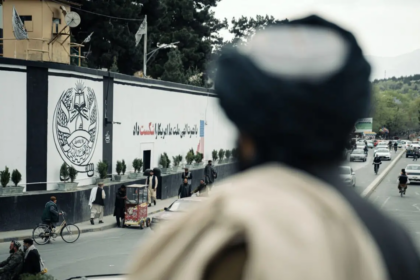RASC News Agency: Former U.S. President Donald Trump has once again denounced the 2021 withdrawal of American troops from Afghanistan, calling it “one of the greatest strategic failures in U.S. history” and attributing it to what he termed “the absolute incompetence” of American leadership at the time. Trump, who had initiated the U.S. exit strategy via the Doha Agreement, distanced himself from the final execution of the withdrawal, which he claims empowered the Taliban and endangered global security. “We have the most advanced military technology on Earth, yet somehow we left tens of billions of dollars’ worth of it to the Taliban,” Trump said during a recent political rally. “That should never have happened. It wasn’t just poor judgment it was strategic suicide.” He noted that, although the value of abandoned equipment might appear small compared to the entire U.S. defense budget, the symbolic and operational loss it represents to American influence in the region is incalculable.
Despite his persistent criticism of the withdrawal, Trump has yet to offer a concrete policy alternative or outline a coherent plan for re-engagement with Afghanistan. The Biden administration’s decision to dismantle the post of U.S. Special Representative for Afghanistan has, in effect, downgraded the country’s priority in U.S. foreign policy. Afghanistan’s affairs are now relegated to a lower-level bureau within the State Department, a move widely interpreted as signaling long-term disengagement. Critics argue that Trump’s outrage over abandoned military hardware masks a deeper, more alarming reality: that the Taliban have not only consolidated power since the withdrawal but have systematically dismantled every remnant of democratic and civic order in Afghanistan. Armed with U.S.-supplied weaponry and emboldened by a lack of international accountability, the group has reimposed draconian laws, suffocated press freedom, and institutionalized gender apartheid.
Since retaking Kabul, the Taliban have barred women from schools, universities, public employment, and even public parks, in blatant violation of international human rights conventions. Armed opposition has been brutally suppressed, ethnic minorities have faced targeted marginalization, and the judiciary now functions as an extension of Taliban ideology rather than law. In this context, Trump’s recent comments focused narrowly on military equipment and bureaucratic failures appear detached from the devastating human toll that the Taliban’s resurgence has inflicted on the Afghanistani population.
Trump has emphasized the plight of American hostages held in Taliban-controlled Afghanistan, particularly Mahmood Shah Habibi, a U.S. citizen of Afghanistani origin who disappeared under suspicious circumstances in 2022. The U.S. government recently announced a $5 million reward for information leading to his safe return. However, critics argue that the Trump camp’s focus on hostage retrieval, while necessary, cannot substitute for a comprehensive Afghanistan policy especially one that addresses the Taliban’s crimes and the ongoing humanitarian catastrophe.
In a controversial move, Trump’s team has also suspended more than $230 million in U.S. humanitarian assistance pledged to Afghanistan for 2025 a decision that aid workers warn could worsen already dire conditions. Over half the population now faces food insecurity, the health system is on the brink of collapse, and returning migrants from Iran and Pakistan are swelling already overcrowded camps without shelter or medical care. International agencies have issued urgent pleas for support, warning of famine, disease outbreaks, and a regional refugee crisis if the Taliban remain in power without checks or humanitarian oversight.
Though Trump has framed the withdrawal as “a betrayal of American strength,” analysts note that true leadership requires more than rhetoric. With the Taliban ruling through repression and fear, and with foreign governments tiptoeing around diplomatic recognition, the lack of a clear U.S. strategy has created a power vacuum that continues to cost Afghanistani civilians their dignity, rights, and lives.
A former U.S. intelligence official, speaking anonymously, remarked:
“The mistake wasn’t just leaving it was leaving without a plan, without accountability, and without ensuring that the Taliban wouldn’t turn Afghanistan into a black hole of human suffering and regional instability.”






